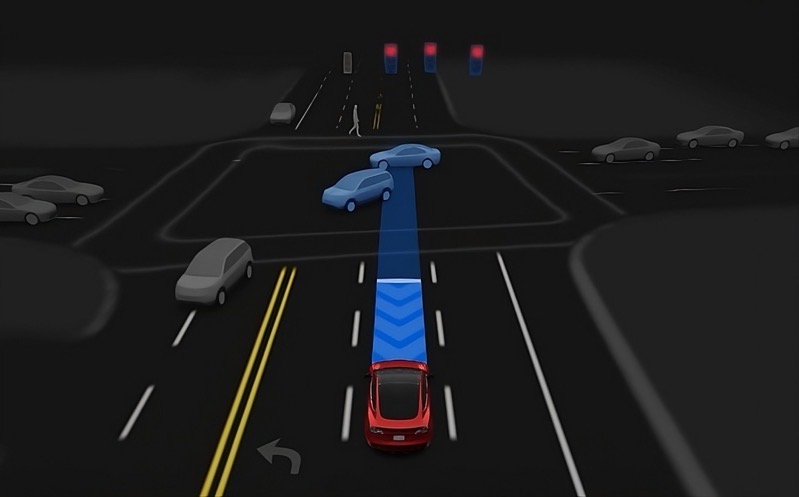Tesla Preps Full Self-Driving Launch in China, Says Report
Tesla is preparing to register its Full Self-Driving (FSD) software with Chinese authorities ahead of its planned rollout this year, according to three people with knowledge of the matter, reports Reuters.
The U.S. EV leader is also considering offering the software as a monthly subscription to its Chinese users, its second-largest market, sources said.
A successful registration with China’s Ministry of Industry and Information Technology would allow Tesla to internally test FSD by having employees drive on public roads before offering it as an upgrade to customers. Currently, Tesla provides two less-advanced versions of its Autopilot driver assistance system in China.
Tesla currently charges a one-time fee of 64,000 yuan ($8,828.32) for FSD access. It may introduce a monthly subscription fee of around $98 in the future, sources indicated. The company is also considering licensing FSD to other automakers in China.
This move could open a new revenue stream for Tesla, which has seen its sales in China decline by 7.6% in the first four months of the year due to increased discounting and competition from local EV makers.
Yale Zhang, managing director at Shanghai-based consultancy Automotive Foresight, commented, “Tesla’s push to roll out FSD in China would pressure other EV startups to accelerate their research and development.”
The timeline for the rollout coincides with Tesla’s efforts to enhance the global development of its self-driving system using data collected and processed in China. This strategic shift is part of CEO Elon Musk’s vision to advance autonomous driving capabilities.
Tesla aims to bring version 12 of FSD to China, the latest iteration of the software that Musk believes is key to achieving fully autonomous driving. The automaker would join at least 10 other companies, including Huawei and Xpeng, offering level-two autonomous driving capabilities in China.
While Tesla plans to charge for FSD, competitors like Li Auto and Xpeng provide similar systems for free on high-end models, and Nio offers trial periods at no cost. Level-two systems require an attentive driver, but Musk has indicated that fully autonomous vehicles are nearing reality. Musk visited China last month to get approvals for FSD in China.
Tesla’s AI model for autonomous driving, based on an end-to-end neural network, deviates from traditional rule-based algorithms. This approach aims to develop self-driving cars that learn more rapidly and make decisions similar to human drivers. Tesla is able to train FSD 12 by just showing it videos.
Yin Chengliang, professor at the Institute of Intelligent Vehicle of Shanghai Jiao Tong University, noted that while rivals can develop competitive algorithms, Tesla’s advantage lies in its data and computing power. Tesla uses a supercomputer called Dojo to train the FSD system using video clips from millions of its EVs. This extensive network and data processing capability provide Tesla with a significant edge over competitors.
Tesla plans to unveil its Robotaxi on August 8, 2024. The date of “8/8” is no coincidence, as those numbers are considered lucky in Asian cultures including China. Musk confirmed the choice, also noting it is the birthday of his triplet sons.

